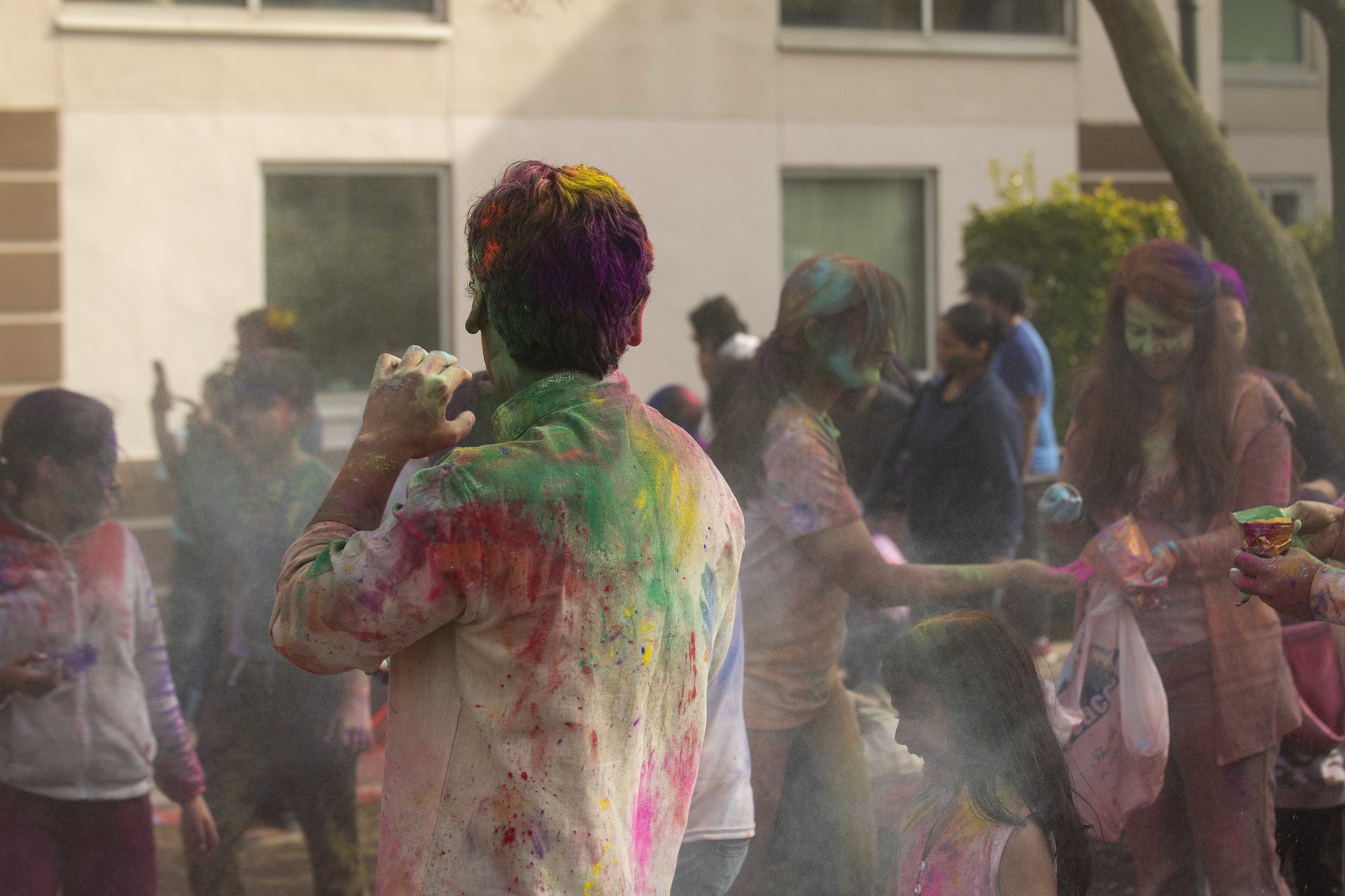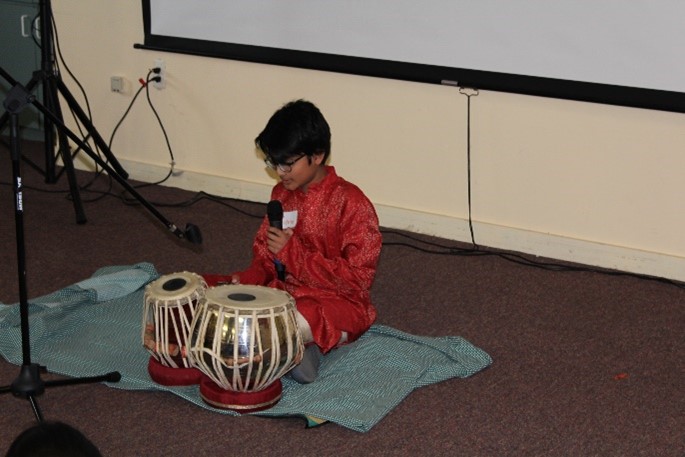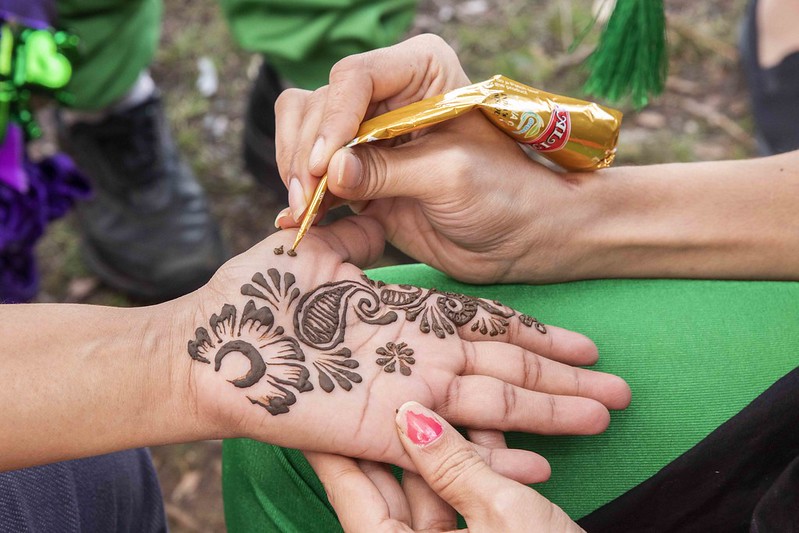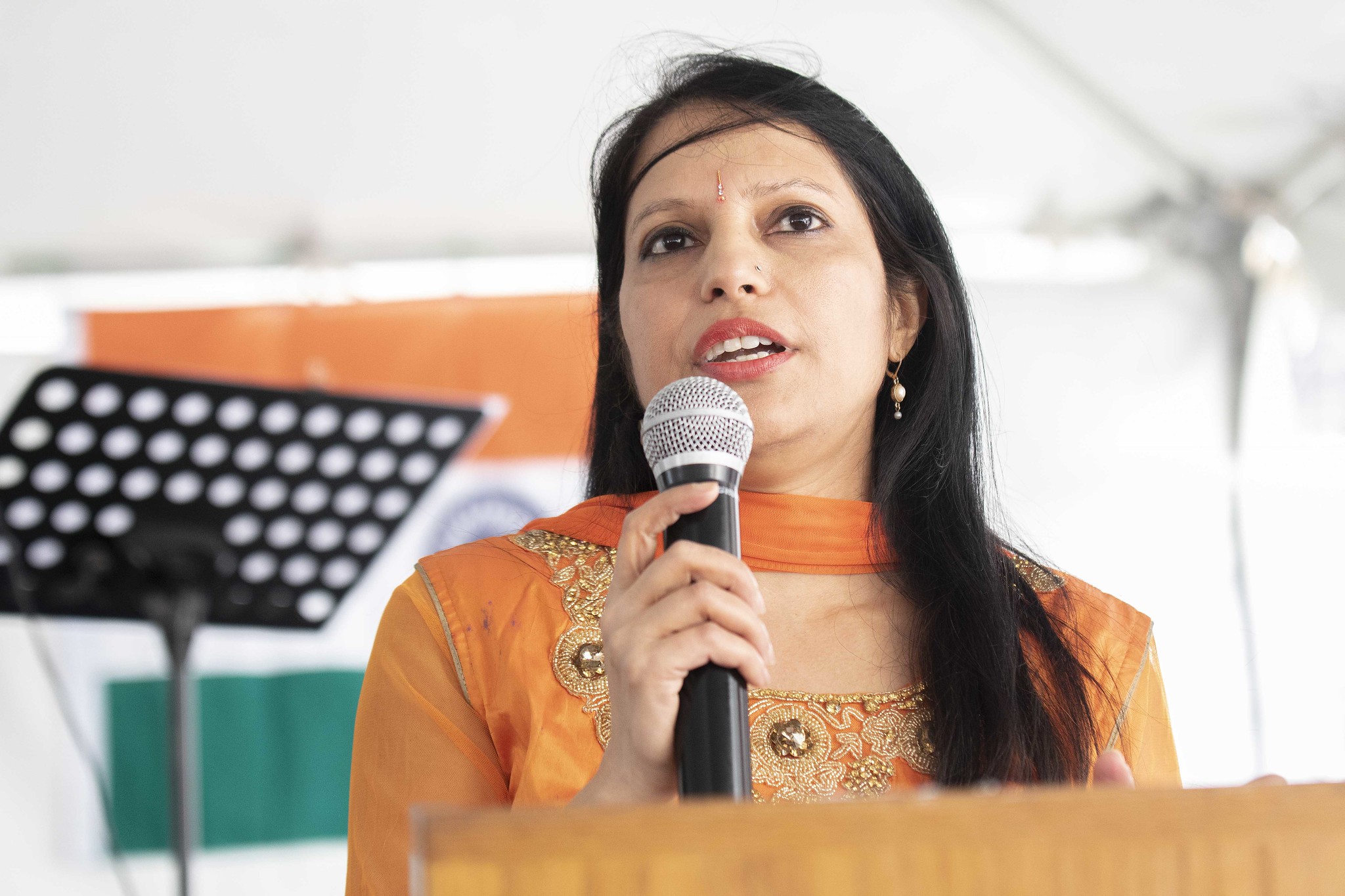New Brunswick Free Public Library Presents:
Holi, the Indian Festival of Colors
Thank You For Coming!
In partnership with New Brunswick Cultural Center Inc. and Rutgers Indian Graduate Student Association, the library presented its 16th annual Holi Festival on April 12, 2025. The program featured a Story of Holi musical dance drama, music and dance performances, henna, face painting, sampling of Indian food, and Holi color play. The event was free and open to all ages. While this was a mostly outdoor event, registration was required due to space limitations. Use the following links to see what it was like!
- View photos and some video of 2025's event on Flickr.
- View photos taken by a professional photographer at United Visual Media.
- View a video put together by Events Now USA.
This project is supported in part by the Middlesex County Board of County Commissioners and the New Jersey State Council on the Arts, a partner agency of the National Endowment for the Arts. Our additional program sponsors include South Asian Total Health Initiative, Bikanervala, Bollywood Tadka, Delhi Garden, Mejwaani, Pooja Restaurant, Navrang Dance Academy, Chinmaya Nirtyalaya, Sowparnika Dance Academy, Sanskruti School of Cultural Dance, TV ASIA, and WRSU 88.7 FM Rutgers Radio.
Wondering how to get here? Please visit our Directions and Parking page. Use this tool to find nearby parking garages: Parking Locator.
For more information, contact Kavita Pandey at 732-745-5108 x2732 or kavita@nbfpl.org.

What is Holi?
Holi has been celebrated in India for centuries, going back to the 4th century CE. It is celebrated on the day after the last full moon of the Hindu month of Phalguna. Phalguna falls between late February and early March. Known as the festival of colors, Holi celebrates the arrival of spring and thanksgiving for a good harvest.
Holi's Social Significance
Holi helps to bring the society together and strengthen our country. This festival is also celebrated by non-Hindus, as anyone can be part of this colorful and joyous festival. The tradition during Holi is that even enemies turn friends and forget any hardship that may be present. During Holi there is no difference between rich and poor, everyone celebrates the festival with a spirit of friendliness and brotherhood. On the evening of Holi, people visit friends and family. They exchange gifts, sweets, and greetings. This helps in renewing relationships and strengthening emotional bonds between people. The festival of Holi is predominantly a festival of fun.
Holi Legend
The name Holi comes from “Holika”, the sister of demon King “Hiranyakashyap” There are different versions of Holi’s origin. One popular version of the story is that Holi celebrates the Hindu god Krishna and the legend of Holika and Prahlad. In this story the evil king Hiranyakashipu became so powerful that he forced his kingdom to worship him as their god. Even though the king forced everyone to worship him, his son Prahlada continued to be an avid devotee of the Hindu deity Lord Vishnu. The angry king conspired with his sister, Holika, to kill his son. Holika was immune to fire. She tricked Prahlada to sit in a pyre with her. When the pyre was lit, the boy’s devotion to Lord Vishnu helped him walk away unharmed while Holika burned to death despite her immunity. This is the victory of good versus evil. [Source: https://www.holifestival.org/legend-holika-prahlad.html]








